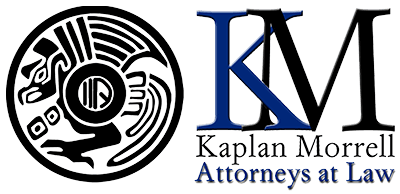In Colorado, employers are legally required to carry workers’ compensation insurance to protect employees injured on the job. While this system generally ensures that injured workers receive medical care and lost wages, insurance companies sometimes deny claims by invoking what is often called an “Act of God” defense.
At Kaplan Morrell, we believe every worker deserves to understand their rights—even in situations where insurers try to avoid liability. Let’s explore what Acts of God mean in workers’ compensation and when you can still successfully claim benefits.
What Is an “Act of God” in Workers’ Compensation?
An Act of God refers to an unforeseeable, unavoidable natural event—something beyond human control that causes injury or loss. This includes:
- Earthquakes
- Tornadoes
- Floods
- Hurricanes
- Lightning strikes
- Wildfires
In legal terms, this is also known as force majeure, meaning a “superior force” that neither the employer nor the employee could have prevented.
Insurance companies may attempt to use this defense to deny workers’ compensation claims when injuries result from these kinds of natural events. Their argument is that since no one is legally at fault, no compensation is owed.
Does an Act of God Automatically Disqualify You from Workers’ Compensation?
No, it doesn’t.
One of the fundamental principles of Colorado workers’ compensation law is that:
- Fault does not matter.
- What matters is that the injury occurred in the course and scope of employment.
Even if no one could have prevented the natural disaster, if you were:
- At work
- Performing your job duties
- Injured as a result of the event
You may still be eligible for workers’ compensation benefits.
Real-World Example: When an Act of God Becomes an Employer’s Responsibility
Imagine this scenario:
You’re working in your office when a mild earthquake strikes. During the quake, part of the ceiling collapses, causing you serious injury. The insurance company immediately denies your claim, calling it an Act of God.
But let’s look closer:
- Was the building constructed or maintained properly?
- Were there pre-existing safety issues that increased the risk of injury?
- Did the employer take reasonable measures to ensure the safety of the workplace?
If the injury was made worse because of negligent building maintenance, unsafe working conditions, or failure to implement safety protocols, then the injury may no longer qualify as a pure Act of God. Instead, it could be classified as a compensable workplace injury, with the employer’s choices playing a role in the harm you suffered.
When Is Something Not an Act of God?
- If the injury is foreseeable (e.g., flood risk in a known flood zone)
- If the employer failed to act reasonably to protect workers from predictable natural hazards
- If the injury was exacerbated by poor safety measures, building flaws, or negligent supervision
In these cases, your injury may not qualify as an Act of God—and you can claim workers’ compensation benefits.
Why Legal Representation Matters
Insurance companies are often quick to deny claims involving natural disasters or unforeseen events, citing “no-fault” arguments. But these cases are rarely as clear-cut as they appear.
With the help of an experienced Colorado workers’ compensation attorney, you can:
- Investigate the true cause of the injury
- Challenge the Act of God defense
- Secure the medical care, wage loss, and disability benefits you deserve
Our legal team at Kaplan Morrell knows how to identify negligence, foreseeability, and unsafe working conditions—even when the insurance company claims they aren’t responsible. If you’ve been injured on the job, even in an event that seems beyond anyone’s control, don’t accept an insurance denial without speaking to us first.
Call Kaplan Morrell today for a free, confidential consultation.


